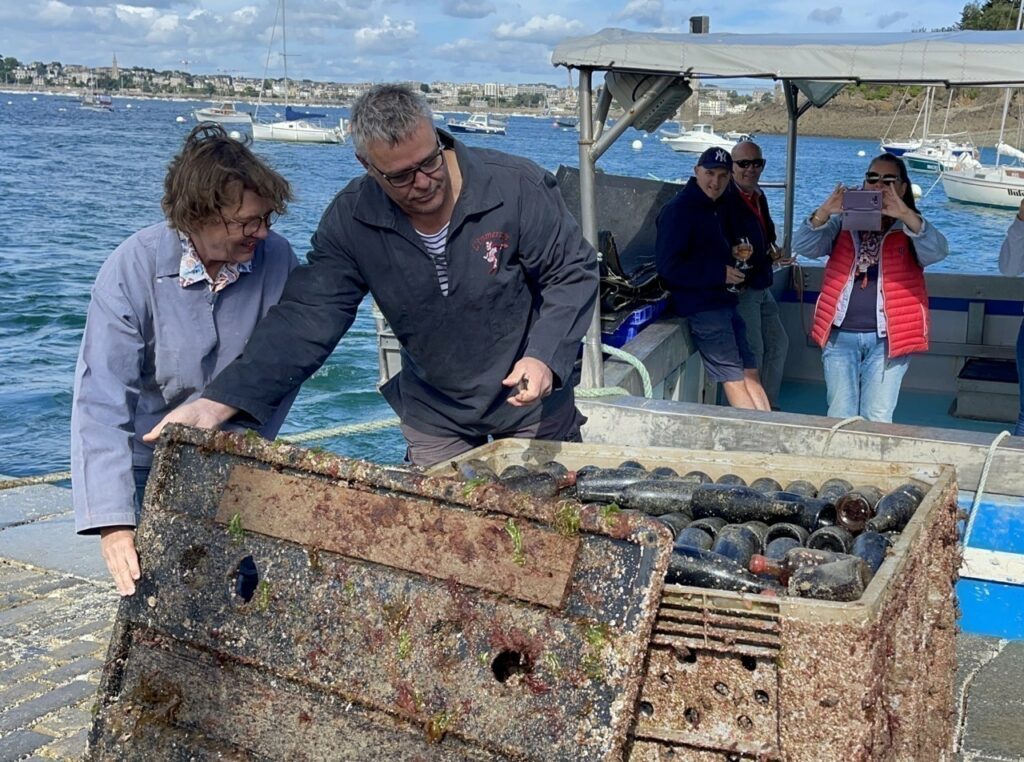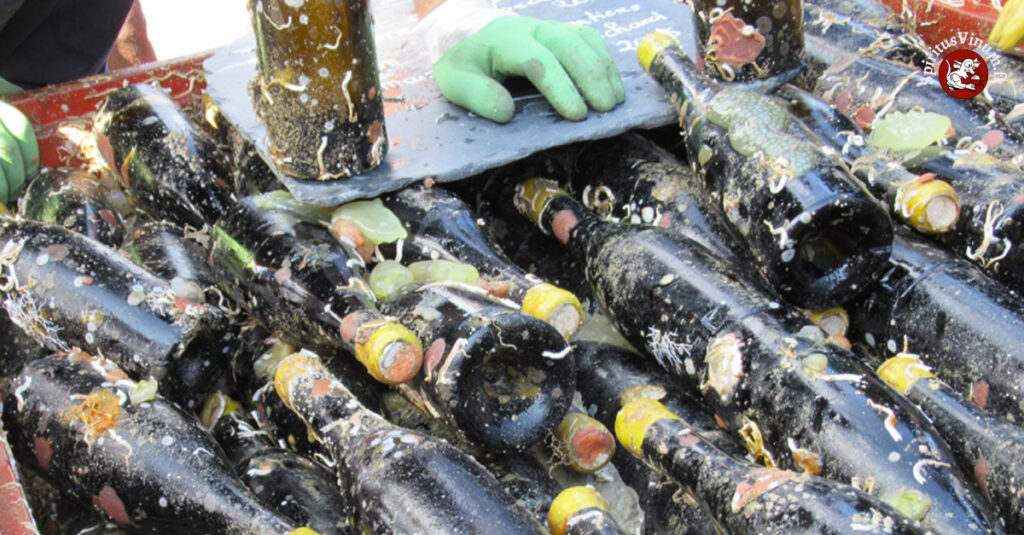Wine aged at sea is attracting the curiosity of wine lovers and professionals alike. The idea is to immerse bottles for several months, or even years. The process is as intriguing as it is divisive, with some seeing it as an innovation, and others simply as a marketing ploy.
If you're interested in wine-related articles, download our app for IOS or Android. It will give you access to our wine lexicon, our articles and our innovative solution, designed for all wine consumers and collectors.
The principle of wine ageing at sea
Aging wine at sea relies on a special environment. Underwater temperatures remain constant and moderate. Darkness prevents any light-related alteration. Gentle currents gently stir the contents, encouraging subtle internal exchanges. This atypical wine storage is an alternative to land-based cellars.
The origins of this practice
The idea of sea-aged wine is not new. Discoveries of ancient bottles in shipwrecks have inspired winemakers. Tastings of these wines, some of which were hundreds of years old, revealed an astonishing freshness. These observations led to the reproduction of marine conditions to test the impact on wine aging.
The potential advantages of offshore wine storage

Storing wine underwater maintains perfect hygrometry and avoids sudden temperature variations. The absence of oxygen limits premature oxidation. Sea currents create a constant micro-movement that could influence aromatic evolution. This wine experiment is seductive in its singularity and experimental aspect.
Technical limitations and constraints
Submerging wine in the sea requires authorizations and a safety system. Bottles must resist pressure and corrosion. Aging wine underwater requires considerable logistical follow-up to guarantee batch recovery. This method is therefore costly and reserved for special cuvées.
Sensory impact: myth or reality?
Several comparative tastings have been organized between land and sea-aged wines. Some tasters perceived differences, others did not. Supporters point to more mellow aromas and a silkier texture. Skeptics believe that the effect is mainly a matter of wine experience and psychological suggestion.
Examples of estates using this method

Vineyards in France, Spain and Italy are experimenting with wine storage at sea. Bottles are sometimes stored at depths of several dozen meters. These projects often combine communication and scientific research. Sea-aged wine is thus becoming a rare product, sought after by collectors.
The role of marketing in this trend
The wine experience takes on an emotional dimension with marine aging. Producers tell the story of each bottle's underwater journey. The design of the bottles, often covered with shells, reinforces the visual appeal. This staging contributes to commercial success, regardless of the actual effect on wine ageing.
Ongoing scientific research
Laboratories analyze the chemical composition of aged mer wines. The results sometimes show slight variations compared to conventional wines. However, the differences are often smaller than those linked to vintage or terroir. Wine storage at sea continues to be the subject of debate in the oenological community.
Experience for the wine lover
Participating in a comparative tasting allows you to make up your own mind. The wine experience then becomes sensory and personal. Some find it uniquely charming, while others prefer the consistency of cellar-aged wines. Above all, wine ageing at sea remains a curiosity that enriches oenological culture.
A practice between tradition and innovation
Sea-aged wine illustrates the creativity of winemakers in their quest for new experiences. While the sensory benefits are not always proven, marine wine storage fascinates. Aging wine underwater combines ancestral know-how with contemporary innovation. This approach reflects the desire to push back the boundaries of the wine world.
If you enjoyed this article, don't hesitate to read the following article "Hiking and tasting in Corsica: circuits to know"which may also be of interest to you!





